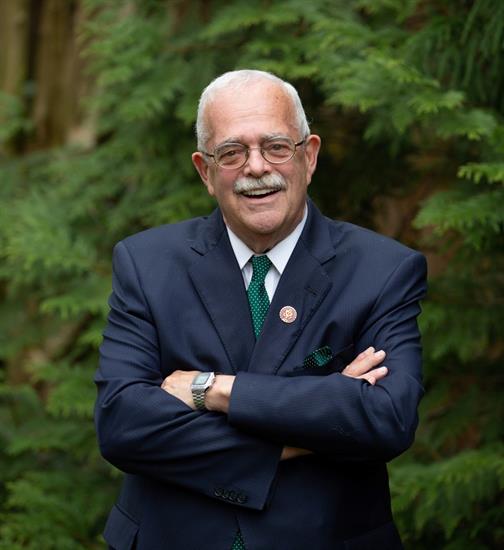Our Invisible Shackles
by Jennifer Roberts, founder of Conversations In the Community
America is the land of the free… for some. Because of the 246 year legal enslavement of Africans and African Americans and the subsequent subjugation that continues today, African Americans collectively are not included in this blanket freedom that is supposed to be the right of every American citizen.
Black people, and certainly, black youth as a collective, do not have the freedom to simply be or to make the mistakes that make us human without the potential scrutiny of public opinion. Any misstep whether perceived or actual, by an African American person is fodder for judgment and stereotyping of all African American people .
African American people, even when we don’t recognize them or accept them, wear invisible shackles that keep us bound not, physically but emotionally and mentally. I am not talking about anything that you can see with your eyes; these are restraints of the mind. These chains are unspoken realities of life and conditioning that have the potential to suffocate all African American people.
I already know that there are African American people who will vehemently disagree with me because they don’t recognize this as their personal experience. But I am not speaking of personal experience necessarily , I am speaking of the shared African American experience that oftentimes does not afford the luxury of individualism. Let me explain.
Many African American children are taught that they can enjoy true freedom based on the choices that they make but are conditioned and groomed for a life of self-scrutiny and insecurity because of the color of their skin. Many African American parents, including myself, pass this legacy down to their children because it was taught to them.
I distinctly remember my mother having conversations with my brother, sister, and me before going into the grocery store on Sunday mornings after church. She would say, “When we get in here don’t embarrass me. Don’t wander away. Don’t ask for anything. Don’t touch anything, don’t be loud and don’t put your hands in your pockets.”
I remember thinking to myself and possibly asking aloud, “What’s wrong with walking with my hands in my pockets?” My mom told us that walking with your hands in your pockets can give the appearance that you have shoplifted. So, at a very early age, not only did I learn to monitor what I was actually doing, I had to also be aware of what someone that I didn’t even know might perceive that I was doing. How exhausting.
I do not fault my mother for this early American education. My mother was preparing my siblings and I for a world that she didn’t create but that she knew we would have to learn how to navigate. It was the same world that she had to learn how to navigate when she was a child. She knew that our success or failure largely depended on learning and adhering to the American rules of engagement that had been around for decades.
Dr. Joy DeGruy Leary speaks to this type of conditioning in her book, “Post Traumatic Slave Syndrome: America’s Legacy of Enduring Injury and Healing.” In the book’s introduction, she recounts a time when she observed a Black mother standing in line at the bank with her small, Black children and a White mom at the same bank in the same line with her small, White children. The Black children stayed very close to their mother as they waited while watching the White children enjoy the freedom of exploring the bank, playing and expressing their natural childhood curiosity away from their mother.
Another African American mother in the bank watched the young Black girl move away from her mother as her mother transacted her business with the teller. When the other African American mother saw the girl moving away and exploring, she gave the child a nod and look that silently told her, “Get back over there with your mother; you know better.”
These experiences and others like them fit black children for the invisible shackles into which they will grow.
In her book DeGruy says, “The proxy black mother smiled contentedly because she had successfully, and non-verbally, reinforced the unspoken rule that little black children cannot move about and stray. This was not a place for them to explore. Moreover, it is a world that belongs to the little white boys and girls and those like them who freely and contentedly may stroll about banks and other places of importance, oblivious to any possible restraint or limitation.”
I recently witnessed this experience firsthand while having breakfast at a local Silver Diner. I was sitting on a bench outside the restaurant waiting to be seated. I observed a girls’ soccer team exit the restaurant laughing, talking and enjoying each other’s company. I watched these girls, who appeared to be 11 or 12 years old walk as a group across the parking lot to a grassy area near the restaurant. They didn’t appear to have adult supervision, and they explored freely as they frolicked and took selfies.
Patrons entered and exited the restaurant, cars drove by and life went on without an ounce of attention being paid to the adolescent group. No one went over to tell them to keep off the grass. No one asked them who was supervising them. No one asked them to keep the noise down. No one called the police and no one deputized themselves as a police officer. No one accused them of being a gang or of reckless behavior. They were free to just be, and no one said a word. Their presence was seen as completely normal and acceptable.
I would dare say that if these adolescent athletes had a little more melanin in their skin, the same situation could have had a different outcome.
Sadly, in this country, a group of White soccer players romping is more readily seen as a kids being kids, while a group of Black soccer players having the same fun might be seen as troublemakers loitering. It’s not right but it certainly is within the realm of possibility.
It didn’t appear as though the kids had been given “the talk” before they had been dropped off. It didn’t seem like these pre-teens had any reservations about publicly enjoying the company of their teammates without a second thought about what complete strangers might think about their behavior because they had the unspoken privilege of being White.
Watching these girls made me reflect on an incident with my son a few years ago. My son, my daughter and I were in the mall parking lot and my son was walking in a way that I did not deem appropriate. I corrected him and imitated the way that he was walking, reminding him that this was not the way he should have been acting. There was nothing wrong with what he was doing, it just wasn’t “the way” that he should have been acting in public. I wonder if White people have these same conversations with and expectations of their children. I wonder if their children must remember and abide by unwritten rules.
My daughter attends a high school where after school some of the students like to hang out at a nearby grocery store. They enjoy walking from school with their friends, meandering through the store and buying a drink or snack at the Starbucks located inside the store.
Unfortunately, I’ve had to teach my daughter that while this may be an innocent enough after school activity for a group of White students, Black and Hispanic students may be looked at differently by the store personnel. Brown students walking through the store might be followed and even questioned and God forbid if one of the students did shoplift or cause a raucous. Somehow one teenager’s personal offense could become the burden of all the teenagers and a reflection on an entire race opposed to an individual indiscretion of the person who stole or was unruly.
It’s heartbreaking to know that even though my daughter could enjoy the privilege of hanging out with her friends at the store, this normal experience requires a conversation about how she should behave even though she has done nothing wrong. I think this conversation has the potential to send a message that all the normal parenting about conduct when she was younger, somehow wasn’t enough.
How liberating it must be as a White person to just show up just about anywhere in America, be welcomed and given the benefit of the doubt because of how you look. How freeing it must be to not have the color of your skin be an immediate indictment against you. How rested White people must feel to not have to bear the burden of wearing two facesa public one for survival and a private one that is authentic. To have your choices, conversations and behaviors readily accepted and even excused. By contrast, how tiresome it is to bear the burden of simply being Black in the United States.
My black is beautiful, but wearing these shackles is exhausting.
(For more columns like this, follow Jennifer Roberts on Instagram @journeywithjenntoday. The preceding column reflects the views of the author only, and not of PW Perspective, LLC or its stakeholders.)



